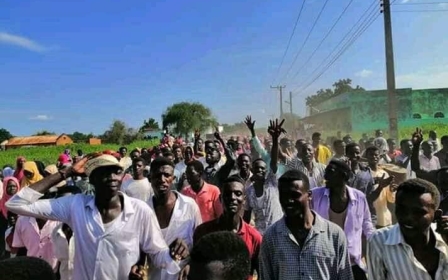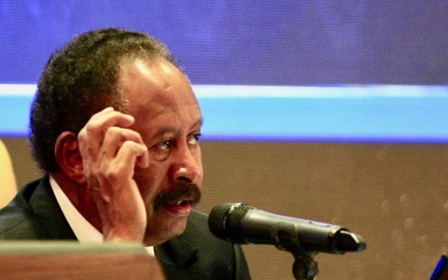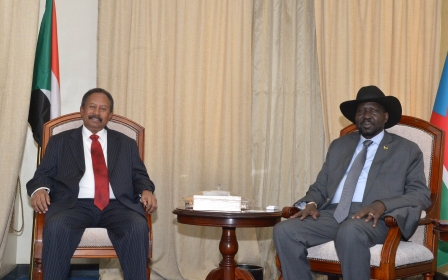Sudan's new prime minister uses UN as launching pad for charm offensive
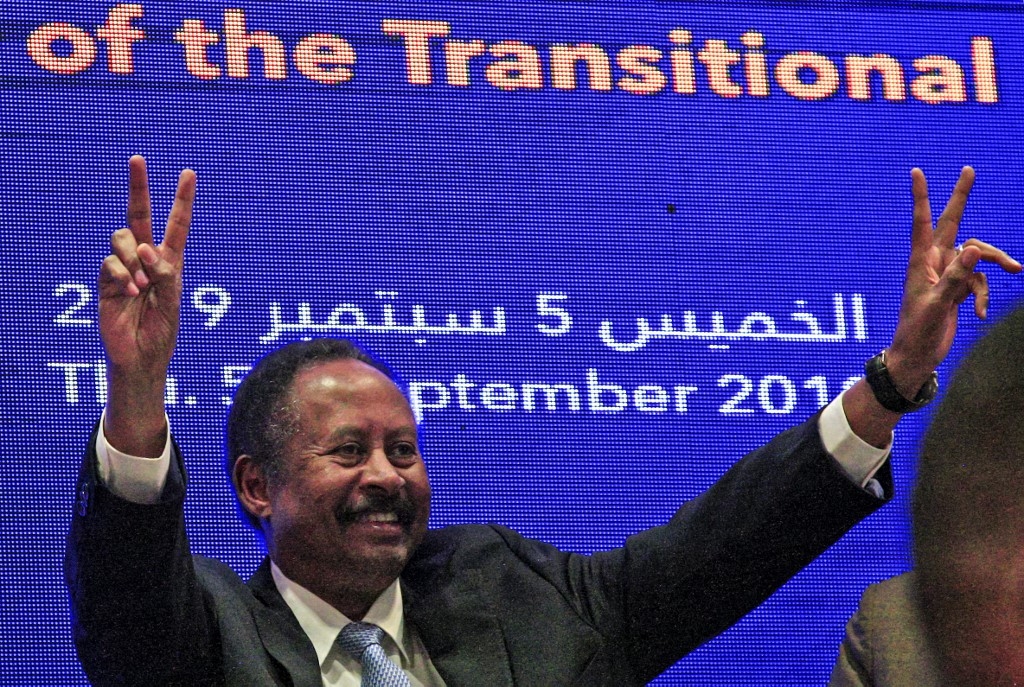
Sudan's first civilian prime minister in three decades has been using a trip to New York for the annual United Nations General Assembly summit as an opportunity to launch a charm offensive and tie up international deals.
Speaking at the UN, Abdalla Hamdok praised the "new Sudan" that has emerged from the months-long protest movement that unseated Omar al-Bashir, who had been in power since 1989, and forced concessions from the military council that replaced him in April.
Hamdok now heads a civilian cabinet that is part of a transitional government that shares power with the military.
"Our revolution slogan is: freedom, peace and justice. We strive to exactly implement that," said Hamdok at a UN event on media freedom, where he promised a break from the media censorship and rights abuses of Bashir's rule.
New MEE newsletter: Jerusalem Dispatch
Sign up to get the latest insights and analysis on Israel-Palestine, alongside Turkey Unpacked and other MEE newsletters
The former UN economist has utilised his newly opened Twitter account, posting in both Arabic and English, as he met with regional leaders and the heads of international organisations.
He attended as his foreign minister, Asmaa Abdallah, signed an agreement to open a UN human rights office in Sudan.
His government announced earlier in the week that Hamdok plans to ask the World Bank for $2 billion to fund a plan to revive Sudan's economy, which was ravaged under Bashir and suffers from soaring inflation.
The removal of subsidies caused a tripling in the price of bread, prompting protests in December that quickly transformed into a nationwide uprising.
Hamdok's government has said it will keep subsidies in place until at least 2020, but plans to reduce military spending, which he said forms 80 percent of the budget.
The Sovereign Council, a body that operates within the transitional government alongside Hamdok's cabinet, is split between civilian and military members but will be chaired by a general until 2021.
The current chair is the head of the military council that replaced Bashir, Abdel Fattah al-Burhan. He is joined by Mohamed Hamdan Dagolo, also known as Hemeti, the head of the notorious Rapid Support Forces (RSF) paramilitary.
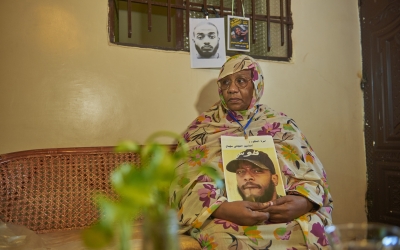
The military council and Hemeti's forces are accused of using deadly force against protesters, including the killing of more than 100 when a sit-in outside the military headquarters in the capital Khartoum was dispersed in June.
Some question whether the military is sincere in upholding its agreement with the protest forces to form the transitional government and there have already been several tests of its response to protests.
Police were criticised last week for using tear gas to disperse protests, while the RSF were also accused of violently dispersing protests by school students in Darfur this week.
Protesters in South Kordofan, a focal point of a decades-long rebellion in Sudan's south, have been protesting for the past three weeks over the presence of a gold-mining operation that uses dangerous chemicals, which they claim is owned by Hemeti, and against the heavy presence of his RSF fighters.
Middle East Eye delivers independent and unrivalled coverage and analysis of the Middle East, North Africa and beyond. To learn more about republishing this content and the associated fees, please fill out this form. More about MEE can be found here.


